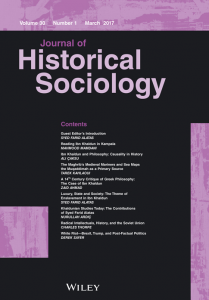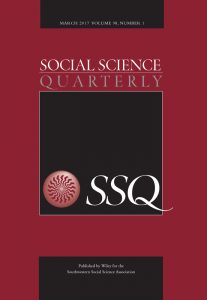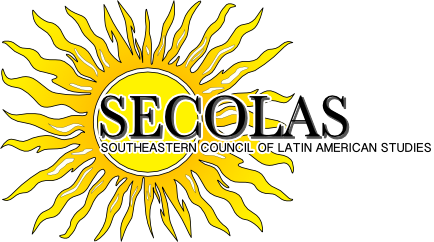The Symbolics of Sexuality

One of sociology’s main critiques revolves around neoliberalism, and its implications on everyday life in a capitalistic society. Yet, individuals do not comprehend what these implications are for those who identify as LGBTQ. As of recently, there are a plethora of articles illustrating some of the consequences that occur in this new neoliberal society. For example, John P. Elia and Gust A. Yep stated in their article, “Sexualities and Genders in an Age of Neoterrorism:”
Read more about neoliberalism and its consequences here. Neoliberalism often creates the illusion of LGBTQ acceptance through visibility of these identities as consumers while leaving the underlying oppressive structures (e.g., hierarchical notions of sexual and gender differences in U.S. society that ultimately create symbolic and material harm) unexamined and untouched. These notions and practices are becoming more and more normalized and unchallenged. (Elia & Yep, 2012; 880)
With increased media coverage pertaining to Marriage Equality and Trans visibility, American society portrays a more inclusive, and accepting society for the LGBTQ community. However, it is just a rouse. What one does not see are many hate crimes committed in the United States, never to be revealed or discussed, to maintain an illusion of acceptance; or, symbolic acceptance. But what is symbolic acceptance?
Elia and Yep do not provide an exact definition for this idea of symbolic acceptance, but we can extrapolate one based on the quote above, and, they further state, “as a result, the legalization of same-sex marriage, the passing of hate crime legislation and enforcement, and the right to serve in the military have become primary concerns of the gay and lesbian movement and the hallmarks of inclusion in the social and cultural fabric of the United States” (Elia & Yep, 2012; 885). This is the best way, I believe, to define symbolic acceptance. The passage of laws and adjusting the legal system is just symbolism: it does not change people’s ideologies, or their practices, in actuality. Symbolic acceptance is omnipresent ideology pervading societal views and norms. Yet, you cannot define it without the idea of symbolic wreckage.
Symbolic wreckage can be best summarized as the violence against particular individuals and groups: however, the definition cannot stop there. To further symbolic wreckage, it can be explained as, “the symbolic violence against sexual or gendered people who do not fit in or who are not productive are discounted, shunned, or worse yet become symbolically annihilate” (Elia & Yep, 2012; 884). Moreover, this symbolic violence is possible since, “law and policies that attempt to change this cultural landscape have, in general, followed neoliberal principles and ideologies that focus exclusively on inclusion and incorporation rather than redistribution of political and economic resources and deep transformation of the social system” (Elia & Yep, 2012; 884). The best example of this is the federal passage of Marriage Equality. Although it is a milestone for people of all sexual identities to marry their loved one, it is not without its cost. Marriage Equality is, essentially, geared towards the homonormative bunch of LGBTQ individuals; cosmopolitan gay white men. The passage, indeed, change some of the cultural landscape of American society. However, it still favors those same individuals who consume the most in a society, and incorporates them back into the prestigious rankings. If this is true, how can one attempt to solve the issues of symbolic acceptance and wreckage? Audre Lorde would argue poetry as the healer of such atrocities.
According to Lorde, poetry is, “…that we give name to those ideas which are – until the poem – nameless and formless, about to be birthed, but already felt. That distillation of experience from which true poetry springs births thought as dream births concept, as feeling births idea, as knowledge births (precedes) understanding” (Lorde, 1984; 36). It is not until we learn to give a life to our experiences, of the everyday oppressions, that we will be able to birth a new way of understanding and reinvention of society. As Lorde said, it is only when we turn our language to ideas, and our ideas into action, when change can occur. Lorde’s progression, I believe, holds current until present day.
Current researchers should investigate what is it about the body of LGBTQ people of color that provokes (symbolic) violence. Could it be American LGBTQ people are living in a postcolonial society? Or, the idea that homosexuality is a Western trait/something not “natural” to people of color in the West? These questions may be rhetoric researchers can pose, which could also, challenge notions of what it means to be LGBTQ and a person of color. Lorde would believe this is a great start to the politicization of poetry. As author Jose Muñoz states, “we must vacate the here and now for a then and there” (Muñoz, 2009; 185).
Suggested Readings:
- Jose Muñoz. Cruising Utopia: The Then and There of Queer Futurity. (2009).
- John P. Elia and Gust A. Yep. “Sexualities and Genders in an Age of Neoterrorism.” Journal of Homosexuality, (2012), 59:879-889.





1099-1328/asset/dsa_logo.jpg?v=1&s=e4815e0ca3064f294ac2e8e6d95918f84e0888dd)
